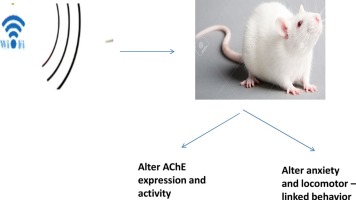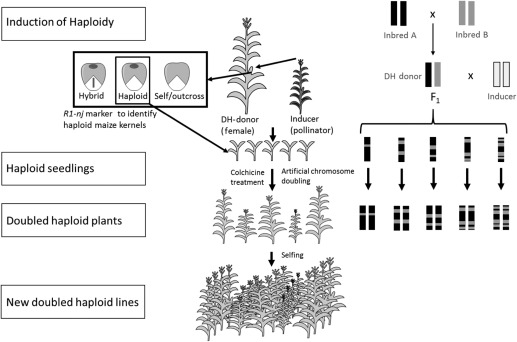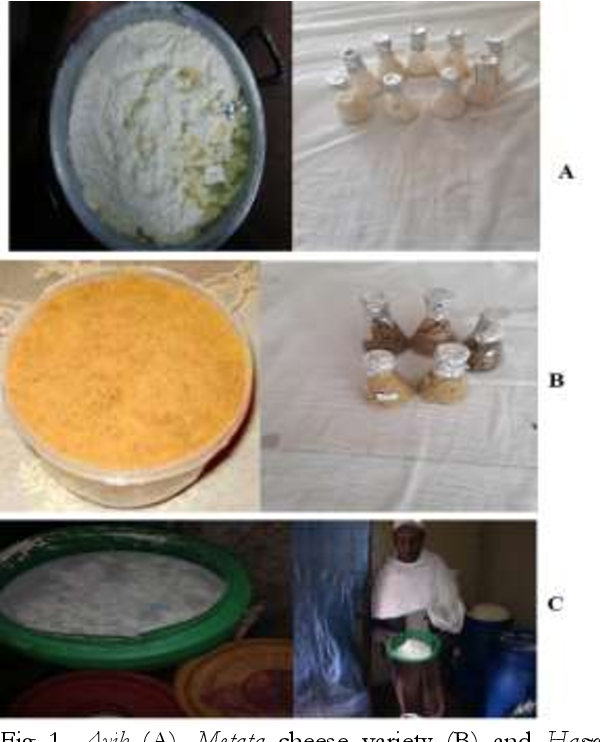Effects of Urbanization on Welfare of Peri-urban Households in Central and North Gondar Zones, Ethiopia
Downloads
Background: Urban expansion in many developing countries has been taking place through the inclusion of nearby rural villages competing against the major productive assets of the subsistence farm households in these villages. Empirical evidence on the effect of this urbanization process on the welfare of peri-urban households is vital. However, such information is scanty in the study area.
Objective: This study was aimed at examining the effects of urban expansion on the welfare of periurban households proxied by consumption expenditures per adult equivalent in Central and North Gondar Zones of Ethiopia.
Methodology: The research used cross-sectional data collected from 405 sample respondents. Multistage random sampling together with purposive sampling techniques were applied. The data were analyzed using descriptive statistics and impact analysis (propensity score matching) procedure.
Results: The largest monthly expenditure of the sample households was food expenditure which is on
average about 1070 Ethiopian Birr per adult equivalent in 2019. Other expenditures included
miscellaneous (water, electricity, cloth, transport and communication), education and home furniture
in their order of importance. Peri-urban households’ consumption expenditure per adult equivalent
was 1234.5 ETB while that of rural counterparts was 922.6 ETB. The difference was statistically
significant (P < 0.05), indicating that urbanization has a positive effect on consumption expenditure. In terms of asset holding, peri-urban samples had a more additional home and other fixed assets such as carts, mills, and rickshaws (Bajaj) compared to rural households.
Conclusion: The average monthly consumption expenditure per adult equivalent of peri-urban households was higher by 33.8% than that of the rural households. The results indicate that increasing compensation for peri-urban households can better improve household consumption thereby their welfare.
Baser, O. 2006. Too much ado about propensity score models? Comparing methods of propensity
score matching. Value in Health, 9(6): 377–385.
Berhanu, Keno, Chen, N., Liu, D., Zhang, X. and Niyogi, D. 2019. Urban expansion in Ethiopia from 1987 to 2017: Characteristics,
spatial patterns, and driving forces. Sustainability, 11: 29–73.
Bikila Hurissa. 2011. Urban poverty alleviation in
Ethiopia: Reflections on government
strategies. Journal of Poverty Alleviation and
International Development, 2(1): 71–96.
Caliendo, M. and Kopeinig, S. 2008. Some practical
guidance for the implementation of
propensity score matching. Journal of Economic
Surveys, 22(1): 31–72.
CSA (Central Statistical Agency of Ethiopia) and ICF
(Inner City Fund International, Inc.). 2016.
Ethiopia Demographic and Health Survey
Addis Ababa, Ethiopia, and Rockville,
Maryland, USA: CSA and ICF.
CSA (Central Statistical Agency of Ethiopia). 2012.
Household consumption and expenditure
(HCE) survey 2010/2011. Addis Ababa,
Ethiopia. Pp. 34.
Dehejia, R.H. and Wahba, S. 2002. Propensity scores
matching methods for nonexperimental
causal studies. The Review of Economics and
Statistics, 84(1): 151–161.
Demisie Gebremichael, Alemayehu Taye, Azeb
Worku, Muluneh Weldetsadik, Yirgalem
Mahiteme, et al. 2014. Building Urban
Resilience: Assessing Urban and Peri-urban
Agriculture in Addis Ababa, Ethiopia. In:
Padgham, J. and Jabbour, J. (eds.). United
Nations Environment Program (UNEP),
Nairobi, Kenya.
Diaz, J.J. and Handa, S. 2004. An assessment of
propensity score matching as a nonexperimental impact estimator: Evidence
from Mexico's PROGRESA program. The
Journal of Human Resources, 41(2): 319–345
Dorosh, P. and Thurlow, J. 2012. Can cities or towns
drive African development? Economy-wide
analysis for Ethiopia and Uganda. United
Nations University World Institute for
Development Economics Research, Working
Paper, No. 2012/50.
ESS (Ethiopian Statistics Service). 2020. Population
projection district as of July 2021.
https://www.statsethiopia.gov.et/population
-projection/ Accessed on 02 February 2022.
Ezana Amdework. 2008. Urban poverty, environment
and ill-Health: A sociological analysis of
exposure to environmental health hazards
among residents of Akaki-Kaliti sub-city.
Journal of Ethiopian Studies, 41(1): 83–109.
FDRE (Federal Democratic Republic of Ethiopia).
Rural Land Administration and Use
Proclamation. Proclamation No. 456/2005.
Federal Negaritgazeta, 11th year No.44. Addis
Ababa, Ethiopia.
Hommann, K. and Somik, V.L. 2019. Which way to
livable and productive cities? A road map for
Sub-Saharan Africa. International
Development in Focus. Washington, DC:
World Bank.
https://openknowledge.worldbank.org/han
dle/10986/31457. Accessed on 05 January
IMF (International Monitory Fund). 2020. 2019 article
IV consultation and requests for a three-year
arrangement under the extended credit facility
and an arrangement under the extended fund
facility-press release and staff report. IMF
Country Report No.20/29, Washington, D.C.
Jorgenson, D.W. and Schreyer, P. 2017. Measuring
individual well-being and social welfare within
the framework of the system of national
accounts. Review of Income and Wealth, 63(2):
–477.
Kibrom Abay, Tiberti, L, Tsega Mezgebo and Meron
Endale. 2020. Can urbanization improve
household welfare? Evidence from Ethiopia.
Partnership for Economic policy (PEP)
Working Paper 2020-02. https://portal.pepnet.org/document/download/34632.
Accessed on 21 March 2021.
Lanjouw, P. and Hentschel, J. 1999. Household welfare
measurement and the pricing of basic
services. Policy Research Working Papers,
World Bank, Washington D.C.
https://documents.worldbank.org/curated/
en/940751468751760044/101501322_20041
/additional/multi-page.pdf.
Accessed on 10 January 2020.
Leulsegged Kassa, Gete Zeleke, Dawit Alemu, Fitsum
Hagos and Andreas, H. 2011. Impact of
urbanization of Addis Ababa city on periurban environment and livelihoods. Sekota
Dry Land Agricultural Research Centre of
Amhara Regional Agricultural Research
Institute, Addis Ababa, Ethiopia.
Rosenbaum, P.R. and Rubin, D.B. 1983. The central
role of the propensity score in observational
studies for causal effects. Biometrika, 70(1):
–55.
SADC (Swiss Agency for Development and Cooperation). 2017. Urban and peri-urban development dynamics in Ethiopia. Study for Swiss Agency for Development and Cooperation, Addis Ababa, Ethiopia.Simon, D. 2008. Urban environments: Issues on the peri-urban fringe. Annual Review of Environment and Resources, 33: 167–185.
Tacoli, C. 2012. Urbanization, Gender, and Urban
Poverty: Paid Work and Unpaid Care work in
the city. Urbanization and emerging
population issues Working paper 7,
International Institute for Environment and Development (IIED), United Nations Population Fund, London, UK.
Tsega Gebrekirstos. 2021. Urbanization and
development: Policy issues, trends and
prospects. Pp. 93–158. In: Mengistu Ketema
and Getachew Diriba (eds.). State of the
Ethiopian Economy 2020/2021: Economic
Development, Population Dynamics and Welfare.
Economic Association, Addis Ababa,
Ethiopia.
UN DESA (United Nations, Department of Economic
and Social Affairs, Population Division).
World Urbanization Prospects: The
Revision (ST/ESA/SER.A/420).
United Nations, New York.
UNCTAD (The United Nations Conference on Trade
and Development). 2020. Handbooks of
Statistics.
https://unctad.org/webflyer/handbookstatistics-2020 Accessed on 06 May 2021.
UNESCO Institute for Statistics. 2021.
https://data.worldbank.org/indicator/SE.A
DT.LITR.ZS?locations=ET. Accessed on 10
December 2021.
Un-Habitat. 2010. The state of African cities 2010:
Governance, inequality and land markets. Unhabitat, Nairobi.
UN-Habitat. 2017. National urban policy, Sub Saharan
African report. UN-Habitat, Nairobi, Kenya.
United Nations. 2015. Millennium development goals
indicators. Indicator 7.10 proportion of urban
population living in slums.
http://mdgs.un.org/unsd/mdg/seriesdetail.
aspx?srid=710. Accessed on 14 January 2020.
USAID. 2017. Ethiopian development trends
assessment (Draft report). Ethiopia
Performance Monitoring and Evaluation
Service (EPMES), Addis Ababa, Ethiopia.
World Bank Group. 2015. Ethiopia urbanization
review: Urban institutions for middle-income
Ethiopia. World Bank, Washington, DC.
https://openknowledge.worldbank.org/bitst
ream/handle/10986/22979/Ethiopia000Urb
ddle0income0Ethiopia.pdf?sequence=1
Accessed on 24 August 2020.
World Bank. 2020. Ethiopia poverty assessment:
Harnessing continued growth for accelerated
poverty reduction. World Bank, Washington
DC.
https://openknowledge.worldbank.org/han
dle/10986/33544 Accessed on 15 June 2021.
World Bank. 2021. World Bank staff estimates based on the United Nations Population Division's World Urbanization Prospects: 2018 revision. https://population.un.org/wup/Publications /Files/WUP2018-Report.pdf Accessed on 15 October 2021.
Copyright (c) 2023 Marelign Adugna, Abebaw Abibo, Marye Aragaw, Walelign Yalew

This work is licensed under a Creative Commons Attribution-NoDerivatives 4.0 International License.
- I am authorized by my co-authors to enter into these arrangements.
- I warrant, on behalf of myself and my co-authors, that:
- the article is original, has not been formally published in any other peer-reviewed journal, is not under consideration by any other journal and does not infringe any existing copyright or any other third party rights;
- I am/we are the sole author(s) of the article and have full authority to enter into this agreement and in granting rights to Springer are not in breach of any other obligation;
- the article contains nothing that is unlawful, libellous, or which would, if published, constitute a breach of contract or of confidence or of commitment given to secrecy;
- I/we have taken due care to ensure the integrity of the article. To my/our - and currently accepted scientific - knowledge all statements contained in it purporting to be facts are true and any formula or instruction contained in the article will not, if followed accurately, cause any injury, illness or damage to the user.
- I, and all co-authors, agree that the article, if editorially accepted for publication, shall be licensed under the Creative Commons Attribution License 4.0. If the law requires that the article be published in the public domain, I/we will notify Springer at the time of submission, and in such cases the article shall be released under the Creative Commons 1.0 Public Domain Dedication waiver. For the avoidance of doubt it is stated that sections 1 and 2 of this license agreement shall apply and prevail regardless of whether the article is published under Creative Commons Attribution License 4.0 or the Creative Commons 1.0 Public Domain Dedication waiver.
- I, and all co-authors, agree that, if the article is editorially accepted for publication in Haramaya Journals, data included in the article shall be made available under the Creative Commons 1.0 Public Domain Dedication waiver, unless otherwise stated. For the avoidance of doubt it is stated that sections 1, 2, and 3 of this license agreement shall apply and prevail.












